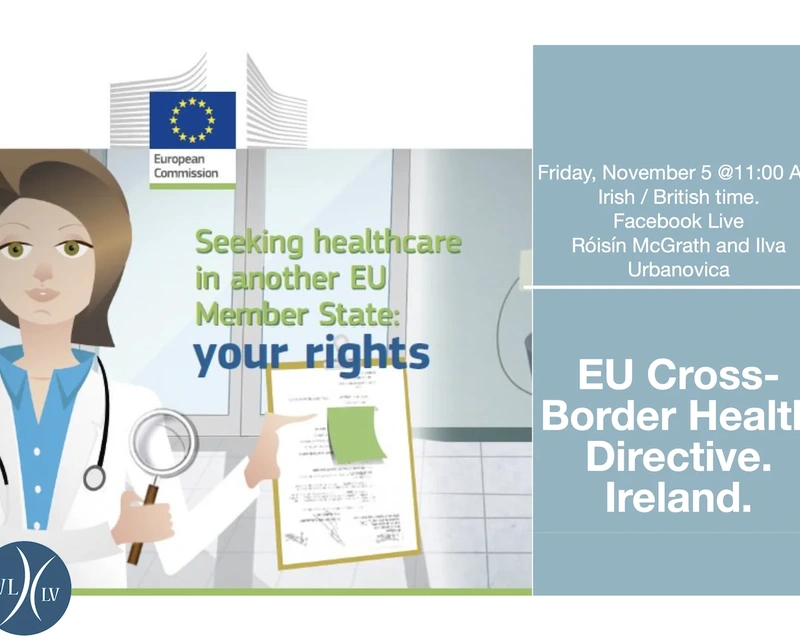
EU CROSS BORDER HEALTHCARE DIRECTIVE IRELAND. HOW TO APPLY
Step-by-step plan for Irish patients who want to use the HSE EU Cross Border Healthcare Directive (CBD) to get weight-loss (bariatric) surgery in Latvia and claim reimbursement.
Who qualifies (in short)
You can apply if you:
- Live in Ireland (for at least the last 12 months or intend to for the next 12 months).
- Are eligible for the same treatment in Ireland’s public system (bariatric surgery is publicly available for people with Body Mass Index (BMI) 35+ and obesity related health issue or from BMI 40+, long waiting lines - 8-9 years to wait).
- Have a consultation before your surgery. (For inpatient treatment like bariatric surgery, this consultation must be in person—it will be held here in Latvia with your treating consultant, e.g., the day a day before your surgery providing you a doctor's statement as approval of the consultation in English)
Use a referral from your GP addressed to our hospital in Latvia. Private insurance can’t be used as the referral route. Also a confirmation letter from HSE Hospital about being on public waiting list suits.
Address of your treating hospital in Latvia with Weight Loss Latvia:
Dr Olegs Kozlovskis,
Sigulda Hospital,
Lakstigalas str 13,
Sigulda, LV-2150, Latvia
What the HSE will pay
HSE reimburses:
- medical costs what you paid abroad directly to the hospital (not exceeding the same care cost in Ireland’s public system (based on DRG prices)). Travel/hotel/transport/translation are not covered.
Step-by-step: from referral to refund
Step 1 — Get the right referral (in Ireland)
The referral letter must include: your name/DOB/address, the destination hospital/clinic & specialty, diagnosis/summary, and the reason for referral. Its date must be before your outpatient consultation.
Step 2 — Book your surgery (and consultation included)
According to the regulation you need an in-person consultation (you will have your consultation with Dr Olegs Kozlovskis the day before surgery).
Step 3 — Have your surgery in Latvia & pay the hospital directly
CBD is a refund scheme: you pay first, then claim back. We will provide you invoices/receipts in English.
Step 4 — Collect the documents you’ll submit to HSE
You will need:
- HSE CBD healthcare costs application form (we will provide one to you),
- Consultation approval (Surgeon's consultation statement)
- Your GP referral (or public waiting-list letter),
- Proof of payment (invoice / receipt / your bank statement/card receipt).
Step 5 — Submit your claim
Email or post your application to the HSE CBD office (Kilkenny). The HSE aims to process within ~6 weeks once they have a complete file.
[email protected] / General enquiries: 056 778 4546 or 056 772 0551
HSE Cross Border Directive,
National Contact Point,
St. Canice's Hospital Complex,
Dublin Road,
Kilkenny
Practical tips
- Timing matters: Make sure your referral letter is dated before your outpatient consultation and surgery.
- Invoices: We will provide you an itemised invoice and receipt.
- Translations: We provide the documentation in English.
- What’s not covered: Travel, accommodation, and other non-medical costs. Experimental/clinical trial care isn’t eligible.
- Who gets paid: HSE pays the patient, not the clinic.
HSE resources
Watch the video with Ilva Urbanovica, Weight Loss Latvia and Roisin McGrath, Weight Loss Latvia bariatric patient from Ireland, Facebook Live about how to apply for weight loss surgery reimbursement by HSE in Ireland.
I will be happy to guide you through the process!
Ilva, Weight Loss Latvia 🧡
Apply for a free consultation here!